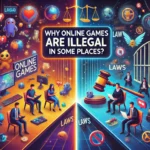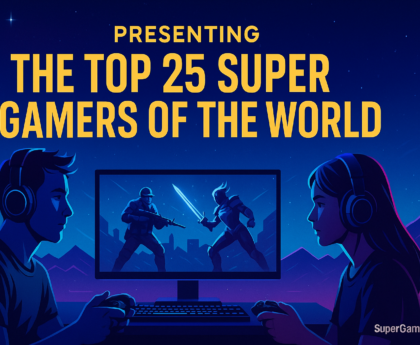Fantasy games immerse players in imaginative worlds filled with magic, mythical creatures, and epic quests. These games are designed to transport players into realms where the impossible becomes possible, offering escapism and an opportunity to explore creative and dynamic narratives.
Types of Fantasy Games
1. Fantasy Role-Playing Games (RPGs)
• Definition: Players assume the roles of characters in a fictional world, often engaging in quests, leveling up, and battling enemies.
• Key Features:
• Complex storylines.
• Character customization.
• Exploration of expansive worlds.
• Examples:
• The Elder Scrolls V: Skyrim.
• Final Fantasy series.
• Dragon Age: Inquisition.
2. Fantasy Strategy Games
• Definition: Players use tactical thinking to manage resources, armies, and kingdoms in a fantasy setting.
• Key Features:
• Turn-based or real-time gameplay.
• World-building elements.
• Focus on long-term strategy.
• Examples:
• Age of Wonders series.
• Heroes of Might and Magic.
• Warcraft III: Reign of Chaos.
3. Fantasy Adventure Games
• Definition: Games that focus on exploration, puzzle-solving, and storytelling within a fantasy world.
• Key Features:
• Emphasis on exploration and discovery.
• Rich narratives.
• Often single-player experiences.
• Examples:
• Zelda: Breath of the Wild.
• Ori and the Blind Forest.
• Dark Souls series.
4. Fantasy MMO (Massively Multiplayer Online) Games
• Definition: Large-scale multiplayer games where players interact in a shared fantasy universe.
• Key Features:
• Persistent online worlds.
• Player-vs-environment (PvE) and player-vs-player (PvP) modes.
• Social interaction and guild systems.
• Examples:
• World of Warcraft.
• Guild Wars 2.
• Elder Scrolls Online.
5. Fantasy Card Games
• Definition: Players collect and use fantasy-themed cards to battle or complete objectives.
• Key Features:
• Strategic deck-building.
• Competitive and cooperative modes.
• Online and physical versions.
• Examples:
• Hearthstone.
• Magic: The Gathering Arena.
• Gwent: The Witcher Card Game.
6. Fantasy Fighting Games
• Definition: Combat-centric games featuring fantastical characters and powers.
• Key Features:
• High-action battles.
• Unique, over-the-top abilities.
• Multiplayer focus.
• Examples:
• Mortal Kombat X (with fantasy elements).
• Injustice (fantasy superheroes).
7. Fantasy Survival Games
• Definition: Players survive in a harsh fantasy world, often by gathering resources and crafting items.
• Key Features:
• Resource management.
• Base-building mechanics.
• Survival against enemies and environmental challenges.
• Examples:
• Don’t Starve.
• ARK: Survival Evolved.
• Valheim.
8. Fantasy Sports Games
• Definition: Players engage in sports-themed games with fantastical twists, such as magical powers or fictional sports.
• Key Features:
• Unique gameplay mechanics.
• Fun, whimsical elements.
• Examples:
• Rocket League (if viewed through a fantasy lens).
• Quidditch World Cup.
9. Fantasy Sandbox Games
• Definition: Open-world games where players can freely explore and shape the environment.
• Key Features:
• Creative freedom.
• Expansive worlds.
• Blend of survival and role-playing.
• Examples:
• Minecraft (fantasy mods).
• Terraria.
Key Elements of Fantasy Games
• World-Building: Lush, detailed universes often inspired by folklore and mythology.
• Magic Systems: Central to gameplay, enabling players to cast spells and wield supernatural powers.
• Creatures: Dragons, elves, orcs, and other mythical beings populate these games.
• Heroic Quests: Epic journeys where players fight evil forces or achieve greatness.
Fantasy games continue to be a beloved genre, offering players a chance to escape reality and explore the depths of their imagination. Whether you prefer epic battles, strategic planning, or immersive storytelling, there’s a fantasy game for everyone.




